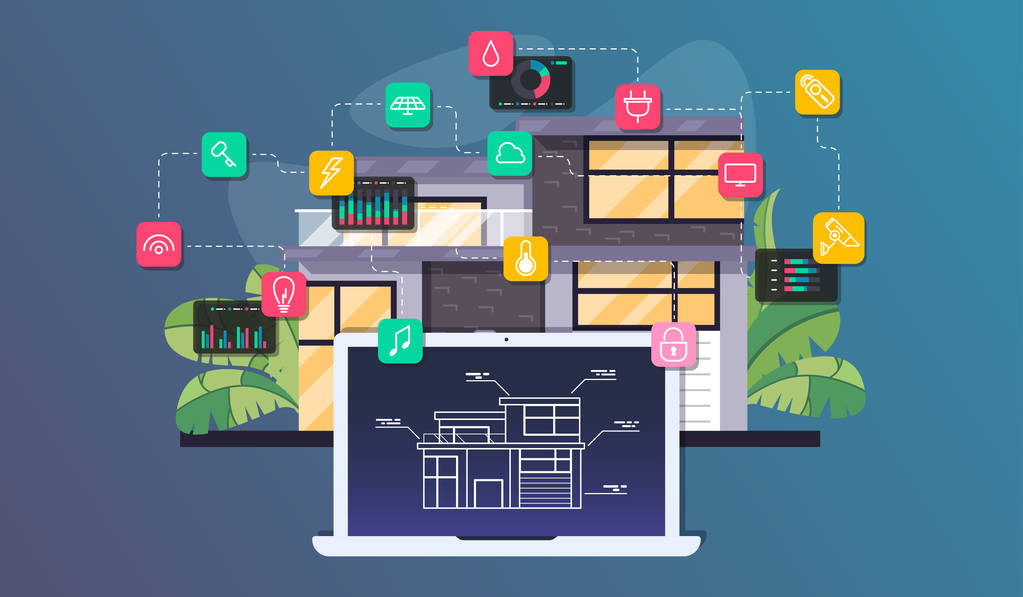The Industrial Internet of Things refers to a combination of interconnected sensors, instruments and other devices with industrial applications, including manufacturing and energy management networking.
Such connectivity allows for data collection, exchange and analysis, potentially contributing to productivity and efficiency gains and other economic benefits. The Industrial Internet of Things is the development of
distributed control systems that achieve a higher degree of automation through the use of cloud computing to refine and optimize process control.
The use of industrial IOT devices is on the rise. According to the data, the market size of the industrial Internet of Things is $326.1 billion in 2021 and is expected to reach about $1.7 trillion by 2030, with a compound annual growth rate of 20.47% from 2022 to 2030.

The Industrial Internet of Things market is expected to continue growing until 2040 due to the increasingly widespread use of cloud computing platforms. IIoT systems are being adopted by various industries, especially manufacturing.
North America is the fastest growing region for the Industrial iot market, with the United States having the highest market share. This is thanks to major Industrial iot market players such as Cisco, General Electric and IBM. The global market for India's industrial iot is expected to exceed $263 billion in 2021 and reach $1.11 trillion by 2028.
For manufacturers, IIoT technology is key to dramatically reducing downtime, new business models and improved customer experience.
With the adoption of edge computing set to increase by 2026 and some businesses wary of adding 5G to the mix, key benefits of the industrial Internet of Things include increased throughput, reduced operational costs and providing a higher level of workforce security. And, of course, increased asset and service efficiency, revenue growth and customer satisfaction.
Industrial IoT monitoring reveals the biggest cost losses, from factory waste to unnecessary truck rolls. IIoT also provides asset health monitoring, remote diagnostics, and predictive maintenance.
The development of the IPv6 standard has contributed to the growth of the industrial Internet of Things market. As the number of connected devices grows exponentially, IPv4 becomes ineffective at storing data generated by so many devices, driving the demand for IPv6.
This latest standard provides increased reliability and advanced security. The standardization of IPv6 is expected to drive the growth of the global industrial iot market.
· Disadvantages of industrial Internet of Things
As with any technology, deploying the industrial Internet of Things is not without risks. Some project risks that hinder enterprise adoption include lack of open standards, device hijacking, data siphoning, data breaches, and the ability to integrate legacy and M2M/OT devices with industrial iot applications.
Because IIoT devices are connected to networks and store large amounts of data, distributed denial of service attacks across all devices or internal networks are a major risk.
An attacker may use the device itself or a centralized network as an entry point and then flood the endpoint device with traffic that fails to do its intended job. In essence, this attack will only make IIoT endpoint devices as useful as bricks.
The increasing adoption of intelligent manufacturing systems and the increasing number of connected devices throughout manufacturing facilities has increased the number of cyber-crimes and cyber-attacks in the industrial Internet of Things industry.
This puts the onus on the owner and vendor of the device to ensure security controls during installation, with both the owner or vendor responsible for network security, wireless security, data security, cloud security and supply chain security.

· Characteristics of Industrial Internet of Things
There are many technologies that facilitate IIoT, such as cybersecurity, cloud computing, edge computing, mobile technology, machine-to-machine, 3D printing, advanced robotics, big data, Internet of Things, RFID technology, and cognitive computing.
The Industrial Internet of Things is primarily focused on using smart technologies and connectivity to improve manufacturing facilities and industrial processes. IoT promises to create smart factories that are more efficient, energy efficient and safer than ever before.
The basic infrastructure of the Iiot implementation consists of a network of interconnected devices that provide data to the control system and, in some cases, react and perform functions based on instructions returned by the control application. A set of remote sensors and activators is a typical endpoint on a network.
Like other IoT devices, IIoT sensors collect and measure the raw information on which the system depends. Depending on the type of industrial IoT system, sensors can measure environmental conditions such as pressure, temperature, humidity, or other important characteristics.
Copyright ©Zimton Technology (Shen Zhen) Co., Ltd All Rights Reserved